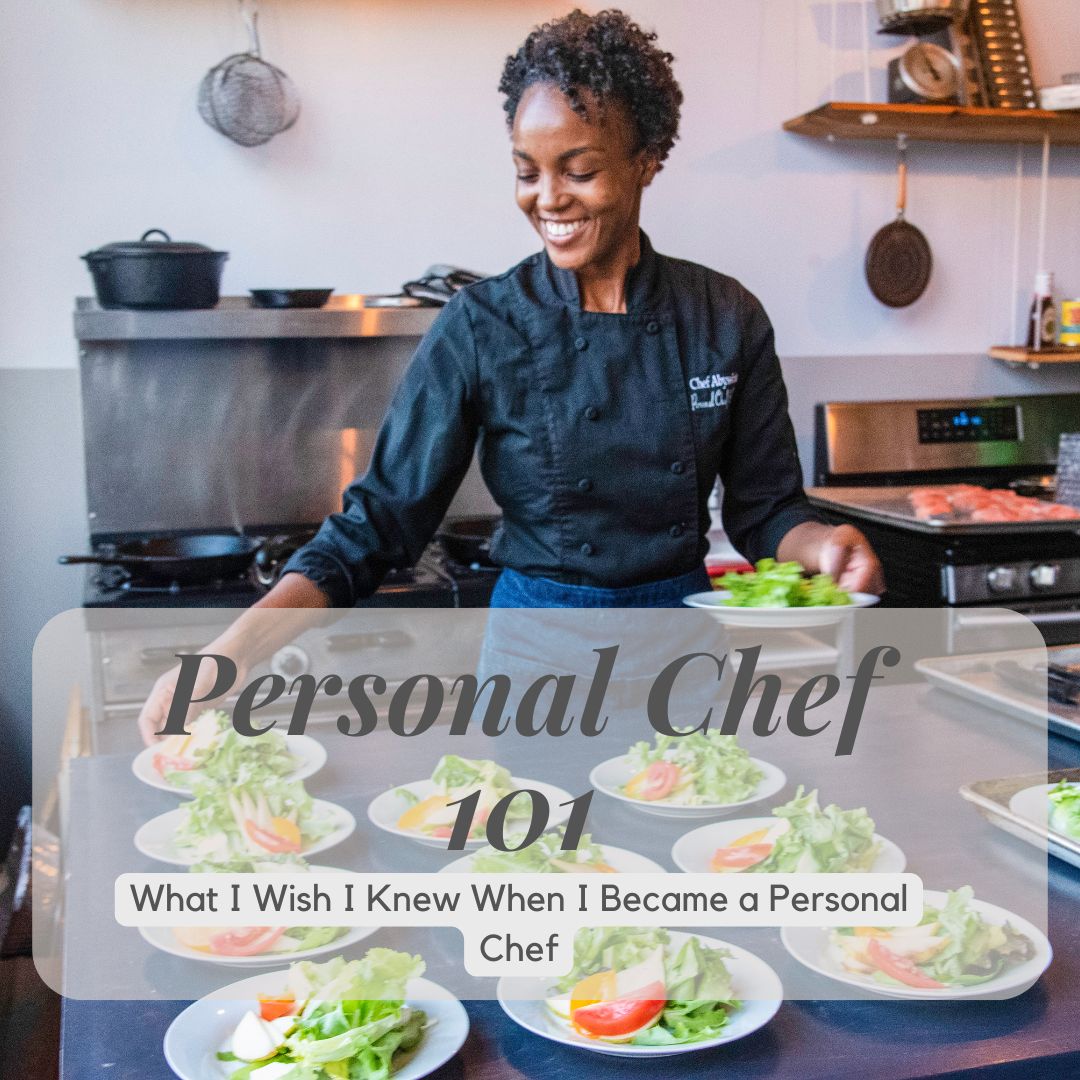What I Wish I Knew When I Became a Personal Chef

Last Updated on: 16th March 2025, 01:29 pm
Building a Successful Personal Chef Career
Becoming a personal chef is a rewarding journey, but it comes with its own set of challenges. Reflecting on my experiences, I've learned invaluable lessons that have helped me run a smoother, more efficient business. Whether you're just starting out or looking to refine your skills, these insights could be the difference between a stressful kitchen and a successful, thriving business.
Key Lessons for a Successful Personal Chef Business
1. Mise en Place: The Foundation of Efficiency
One of the most important lessons I’ve learned is the significance of mise en place. This French term, which means “everything in its place,” is the foundation of an organized kitchen. Preparing as much as possible in advance, from chopping vegetables to pre-measuring spices, not only saves time but also keeps you calm under pressure. Remember the 6 P’s: Proper Planning Prevents Poor Performance.
2. Hire a Team: Don’t Go It Alone
In the beginning, I tried to do everything myself, thinking I could handle it all. However, I quickly realized that hiring a team is essential. A reliable team allows you to focus on what you do best—cooking. Plus, it’s more efficient to pay for help than to stretch yourself too thin. Remember, time is money.
3. Utilize Delivery Services: Save Time and Energy
Driving to multiple stores to source products can be exhausting and time-consuming. Instead, I’ve learned to use courier and delivery services for sourcing ingredients. This strategy not only saves time but also frees up energy to focus on the culinary tasks that truly matter.
4. Value Your Time: Outsource When Possible
Your time is valuable. If your hourly rate is $75 and you can hire someone for $30 to handle tasks like shopping or cleaning, do it. This allows you to focus on the areas of your business that require your expertise, ultimately helping you grow your business more effectively.
5. Get Insured: Protect Your Business
Insurance is a critical aspect of running a personal chef business. It protects you, your clients, and your reputation. Make sure you have adequate coverage to safeguard your business against potential risks.
Advanced Tips for Growing Your Personal Chef Business
6. Financial Planning: Separate Your Business and Personal Finances
One of the first things I did to streamline my finances was to create a separate business bank account. This made it easier to manage taxes, reinvest in my business, and ensure I paid myself appropriately. Keeping your finances organized is crucial for long-term success.
7. Maximize Savings: Use High-Yield Accounts
To make the most of your business earnings, consider placing your savings in a high-yield savings or brokerage account. This allows your money to work for you, helping your business grow with minimal effort on your part.
8. Set Boundaries: Maintain Work-Life Balance
As a personal chef, it’s easy to let work consume your life. To prevent burnout, I established clear business hours, got a dedicated business phone number, and created professional business cards. Setting boundaries is essential for maintaining a healthy work-life balance.
9. Invest in Marketing: Capture Content While You Work
Marketing is a powerful tool for growing your business. I’ve found that investing in content creation, such as having someone take photos or videos while I’m working, has been worth the investment. This not only showcases your skills but also attracts potential clients.
10. Ask for Reviews: Build Trust and Grow Your Clientele
Don’t be afraid to ask clients for reviews. Positive feedback builds trust and can significantly expand your client base. Word of mouth is incredibly powerful in the culinary industry, and reviews can be a key driver of your business's growth.
Crafting a Successful Personal Chef Career
These are the lessons I’ve learned on my journey as a personal chef. Implementing these tips can help you build a thriving business. Whether you're just starting or looking to refine your approach, these insights are invaluable. If you have any tips to add, share them in the comments!
Bon Appétit,
Chef Abyssinia


